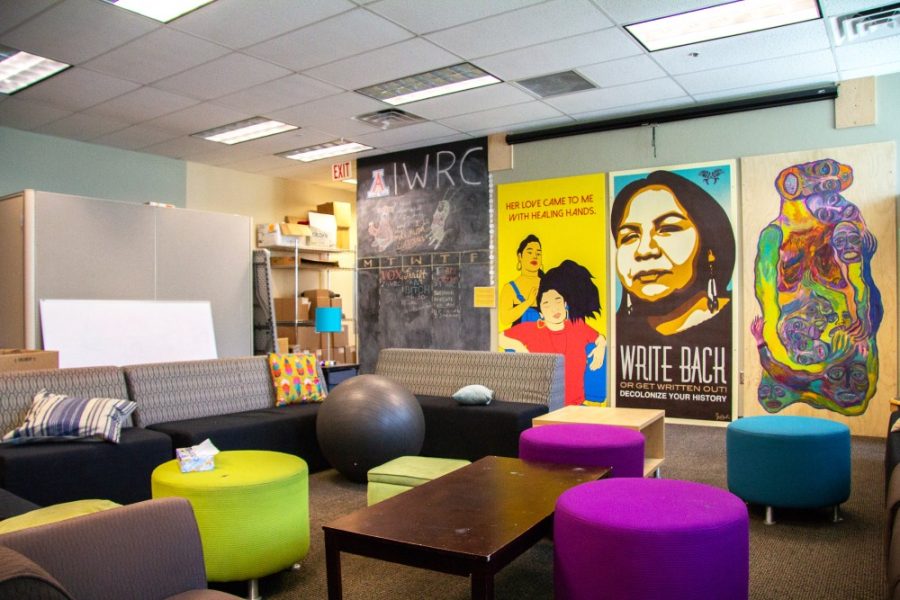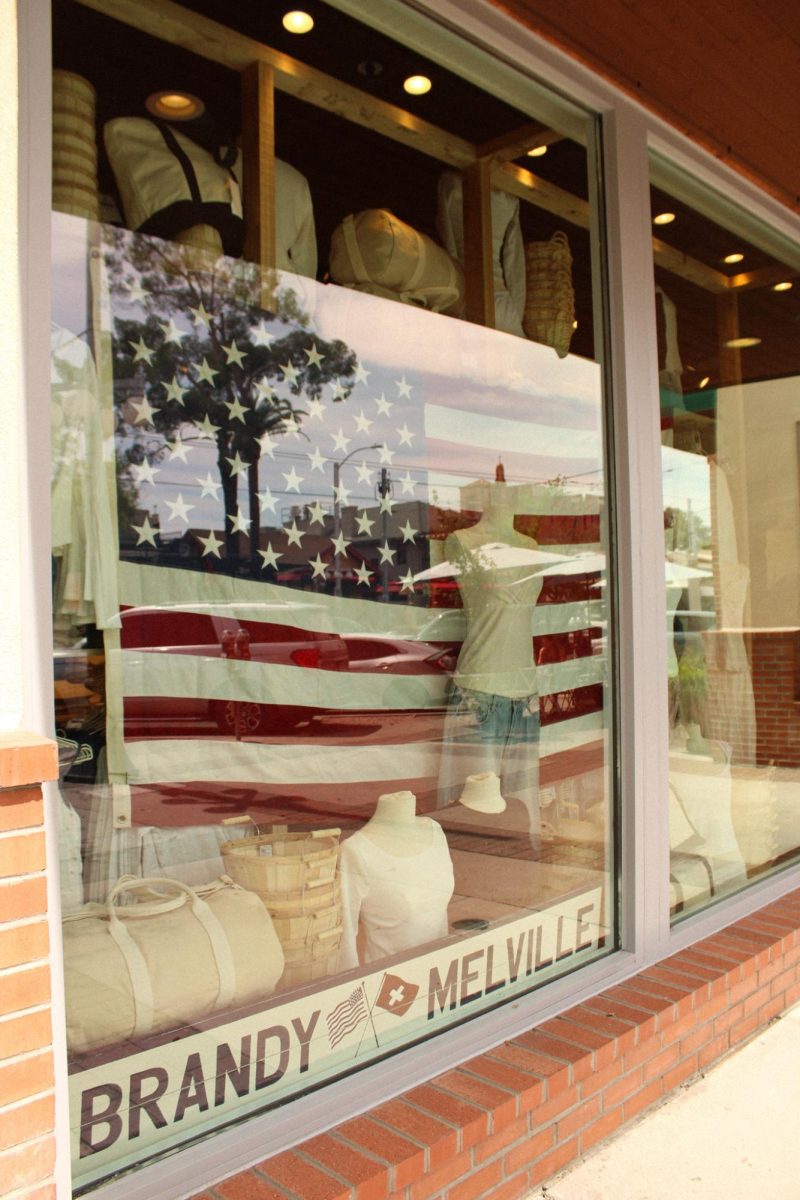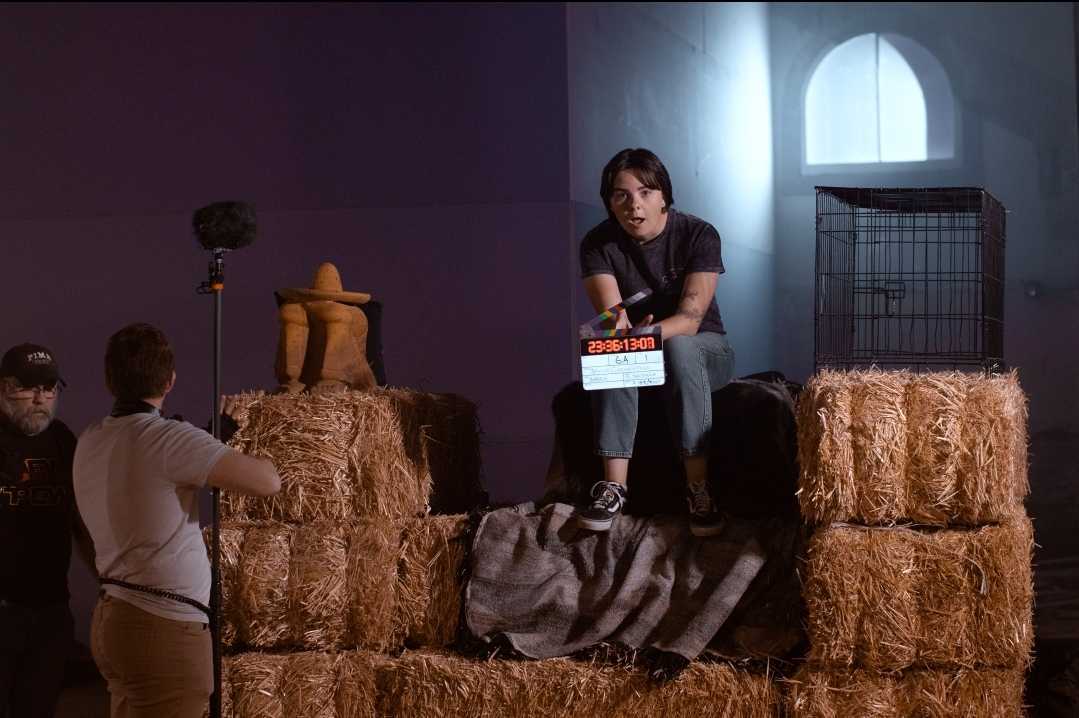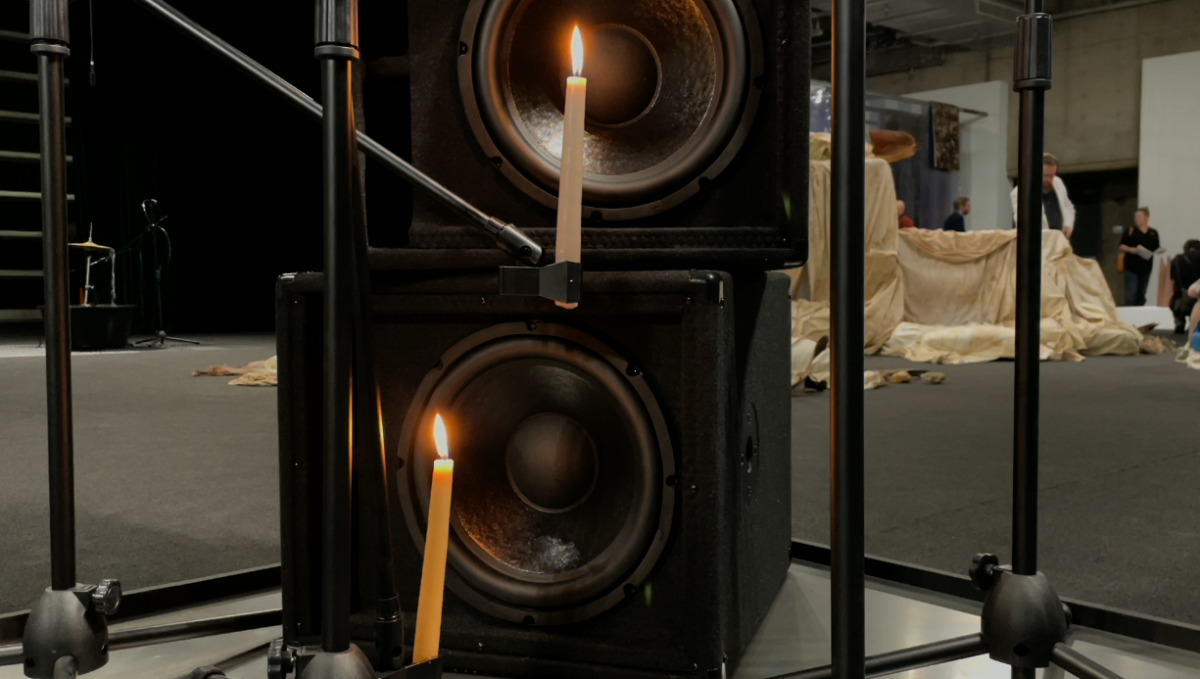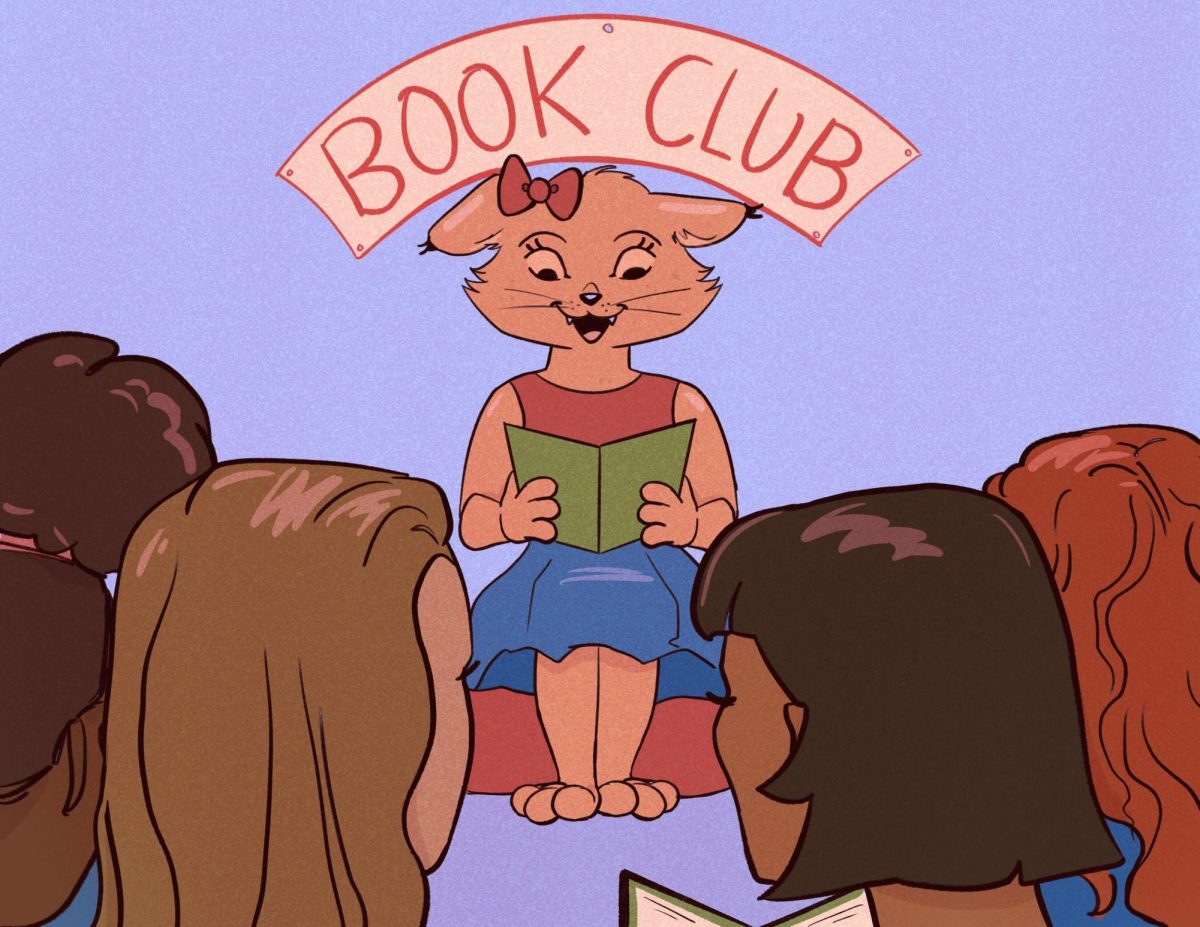The student population of the University of Arizona is diverse and so are its cultural centers. The UA’s 15 cultural centers are there for you whether you want to connect with your culture away from home, chill out in a safe space or just be more involved on campus. Here are all the details you need to know on each center.
Disability Resource Center and Disability Cultural Center:
The UA’s Disability Resource Center’s Disability Cultural Center is one of the very few of its kind in the United States, according to the DRC’s website.
The mission of the DCC is to provide “a space for students, faculty and staff to explore and celebrate disability identity, culture and community,” according to the DRC’s website.
The DCC is located in the DRC on the second floor in Highland Commons, room D217. However, the DCC’s doors are currently closed for the summer and fall semesters due to the COVID-19 pandemic, according to an Instagram post by the DCC.
“We will be holding online discussions and events over the summer and will continue with our programming (e.g. workshops, discussion groups, speakers etc.) online this coming Fall semester. These are decisions we have made to ensure safer events during the ongoing COVID-19 pandemic,” the DCC’s Instagram post said.
The events and programming the DCC host are to help “promote an authentic and intersectional perspective on disability,” according to the DRC’s website.
Some of the events the DCC organizes include workshops, discussion groups, speakers, along with movie and game nights held on Zoom, according to an Instagram post by the DCC.
Students and faculty are able to become involved with the DCC by attending online events or reaching out to the DCC’s email.
For more information on the DCC, email disabilityculture@email.arizona.edu.
RELATED: Off campus essentials: Taking advantage of student discounts
UA Hillel Foundation:
The UA’s Hillel Foundation is the center of Jewish life on campus.
The UA Hillel Foundation’s mission is to be “committed to building a vibrant, diverse, meaningful, and empowered Jewish community at the University of Arizona by assisting Wildcats on their Jewish journeys,” according to the UA Hillel Foundation’s website.
The Hillel Foundation is located at 1245 E. Second St., across the street from the Student Union Memorial Center. Currently, the UA Hillel Foundation building is closed on campus and operating remotely due to the COVID-19 pandemic, according to its website.
Before the pandemic struck, the UA Hillel Foundation organized various events including community service at a local Tucson middle school, a soup kitchen and a Jewish community farm, according to the UA Hillel Foundation’s newsletter.
During the pandemic, the UA Hillel Foundation has resorted to online services and programming. Since beginning virtual services in mid-March, “Hillel has presented almost 30 online programs with twelve of them led by student leaders,” according to the UA Hillel Foundation’s newsletter.
The student led events were diverse in content according to the newsletter.
“They have led cooking sessions, a painting party, a Health Relationship Workshop, weekly Hillel Hang Outs, community service opportunities, and community Shabbat experiences,” the newsletter said.
The UA Hillel Foundation is hosting the Welcome to FYSH (First Year Students of Hillel) at the University of Arizona event virtually on Tuesday, August 4, from 4 p.m. to 5 p.m. Attendees are able to meet students and staff at Hillel and learn about Jewish Wildcat life, according to its website.
The UA Hillel Foundation stays committed to its goal of providing “many opportunities as possible for both undergraduate and graduate students to explore their Jewish identity, build their leadership skills, and engage Jewish life on their terms,” according to the UA Hillel Foundation’s website.
For more information on the UA Hillel Foundation, contact hillelarizona@uahillel.org.
Native American Student Affairs, Nugent Building, Room 203:
Native American Student Affairs serves the Native American and Alaskan Native population of the UA student body. According to NASA’s website, the organization seeks to build a strong and safe community, provide students with leadership and personal development opportunities and help with the development of the UA as a culturally competent campus. NASA strives to reach these goals by providing Native American students with academic counseling, supporting Native American clubs, connecting students with scholarship opportunities and providing ways for students to celebrate their cultures.
On NASA’s website, students can find information about a variety of opportunities. These include clubs for Native American students ranging from focuses on STEM, law, public health to clubs for graduate students, the Native sorority, Alpha Pi Omega and scholarships for students of specific tribes and fields of study.
NASA also participates in community outreach. Currently, the organization is helping to promote a donation drive which is gathering supplies to help the Native nations of Arizona stay safe during the COVID-19 pandemic. The drive will take place on July 25 and 26. You can find more information about the drive here and more information about NASA here.
International Student Services UA Global Center, 615 N. Park Ave., Room 120:
According to the International Student Services website, the organization hosts over 4,000 students from across the globe. International Student Services helps these students in a variety of ways while they adjust to life at the UA. On the ISS website, international students can get information about immigration, visas and employment. International students can also access MyGlobal — the online immigration request system — and learn everything they need to know about being a Wildcat.
ISS also hosts a variety of programs for international and domestic students. Such programs include the Buddy Program, which connects international and domestic students through outdoor activities around Tucson, the leadership program UA Global Ambassadors and the International Student Advisory Council, which provides feedback to the UA campus units on the international student experience.
ISS also provides advising for international students via Zoom. The ISS team has also been providing updates on the ISS website on the status of international students at the UA in relation to the COVID-19 pandemic. Recently, the Trump administration rescinded the previously announced policy that international students would not be allowed to return to the U.S. should their colleges move to online-only instruction.
UA Global provided a statement on the event.
“We continue to value and support our international students … International students are welcome at the University of Arizona, and we are committed to ensuring they are treated equitably,” UA Global said in their online statement.
You can read more about the Trump administration’s decision here and explore ISS here.
African American Student Affairs Dr. Martin Luther King Jr. Building, 1322 E. First St.
African American Student Affairs exists to serve and uplift the Black and African American students of the University of Arizona. Says the African American Student Affairs website, “Your Black is welcome and celebrated!”
AASA hosts a variety of programs, clubs and organizations throughout the school year to provide support for Black students. These include opportunities such as the AASA internship program, groups such as MOCA (Men of Color at UA), the B.L.A.C.K. residential program and the annual Black Baccalaureate.
AASA recently released a statement regarding the death of George Floyd and the widespread protests in support of Black Lives Matter. “Everywhere we look we see Black lives treated as less than,” their statement on the website said. “Please be sure to be safe and take care of yourself while you’re advocating for your community or simply trying to stay in the know.”
In a section of the AASA website dedicated to the history of the organization, AASA says, “Over the decades African American Student Affairs, has maintained our commitment to providing a comfortable and dynamic space for students and advancing diversity at the University of Arizona, in support of Black student retention and graduation. The tradition continues.”
RELATED: Campus reentry update: UA president officially announces return to campus
Adalberto and Ana Guerrero Student Center:
The Adalberto and Ana Guerrero Student Center is a one of 15 cultural centers the UA hosts for students to get involved in college life, cultures, etc.
The mission of the Guerrero Student Center is to “to support students to achieve academic and personal excellence by shaping a safe and inclusive campus environment through culturally affirming programs and events that cultivate a sense of belonging, build community, encourage critical reflection, and develop students’ as learners, leaders, and professionals,” according to the Guererro Student Center website.
The Guerrero center can also provide students a home away from home where they can hang out, do homework and rest in a lounge that includes a TV, couches, tables, chairs and a refrigerator to store food according to the Guerrero Center website. All students are welcome to walk in and get involved in the activities the Guerrero Student Center has to offer.
One of the most popular programs that the Guerrero Student Center has is the AROMAS — Abuelitas(os) Reaching Out to Mentor and Apapachar Students — every third Thursday of the month from 12 p.m. to 1:30 p.m., where local abuelitas (grandmothers) prepare warm, free and delicious homemade meals cooked for everyone who attends. It is also a chance to get to know dozens of undergraduate students, graduate students, staff and faculty members, but also to talk with abuelitas and maybe get some pieces of advice from them.
The Guerrero Student Center’s Casa Ollin program also aims to support Lantinx students and help them during the process of adaptation to college life. The Casa Ollin program is a housing theme community that helps students connect to a a welcoming living environment that “explores and embraces Latinx students’ cultural identity”; the program provides mentoring, advising and support for the transition to college life from Latinx students who have lived the experience, according to the Guerrero Center website.
The Guerrero Student Center is located on the second floor on the north side of the hallway in the Cesar E. Chavez building, but is closed until further notice. For information on remote programs you can follow the Guerrero Center’s listserv, contact staff at (520) 621-5627 or follow the Guerrero Center over social media for updates.
Asian Pacific American Student Affairs:
The Asian Pacific American Student Affairs has been running at the University of Arizona for more than 20 years helping students to find success inside and outside the classroom. By providing programs and a physical space for students to get together while addressing a variety of topics, APASA supports both the academic success as well as the personal and professional development of their student community according to the APASA website.
APASA offers different services for students to get involved such as workshops, literature and other hands-on experiences that will open the door for students to learn about the diverse Asian Pacific American community according to the website. Additionally, they organized events and activities like the welcome back breakfast, Lunar New Year celebration, Diwali and Asian Pacific American Heritage Month.
APASA engages students to explore and understand other cultures and the “impact that race and racism have on people of Asian and Pacific Islander heritage in the United States,” according to their website. One major focus for APASA is the mental health and wellness of their students. They actively encourage students to keep a balance between academic and personal life.
APASA is located on the second floor of the Nugent building. APASA is closed until further notice, but staff are working remotely. Call (520)621-3481, sign up for the APASA listserv or check out their Facebook for updates and learn more about what APASA has to offer.
LGBTQ Affairs
LGBTQ Affairs was created by the UA in 2007 with the objective of providing a safe and welcoming space for those who identify as LGBTQ+. The office of LGBTQ Affairs works for all UA community members: faculty, staff, appointed professionals, students, alumni, parents and guests of all gender identities and sexual orientations, according to the LGBTQ Affairs website.
LBGTQ Affairs was also named by the Campus Pride Index the best campus in the state for LGBTQ+ students. LGBTQ Affairs prioritizes the health and well-being of LGBTQ students. With a mission of promoting fairness in university policies and practices, the LGBTQ Affairs provide several resources including easy access to safe sex supplies and mental health support to help LGBTQ+ students in their adaptation and with rest of the process in their college career.
Additionally, they have LGBTQ+ students’ clubs and organizations that are good for making friends with similar interests. LGBTQ Affairs is located on the fourth floor of the student union in the Center for Student Involvement and Leadership, but is closed until further notice. Students can still connect with staff by calling (520)621-7585 or get updates by checking the LGBTQ Affairs’s Facebook and signing up for their listserv.
RELATED: UA marketing professor coauthors study on how corporations interact with social justice issues
Transfer Student Center
The Transfer Student Center is part of the UA’s Thrive Center, and it is located inside of the Student Union Memorial Center in suite 402. The TSC serves both current and prospective transfer students and “offers free printing, free coffee, locker use, laptop use, and more!” according to The Transfer Student Center’s website.
The Transfer Student Center offers three opportunities to become more involved within the TSC like the Tau Sigma National Honor Society, TransferCats in Action Club and the Transfer Student Advisory Board. The Tau Sigma National Honor Society also known as Tau Sigma Beta Omega is an honor society created for transfer students in the state of Arizona and there are membership requirements associated with participation, according to the Transfer Student Center website. The purpose of the honor society is to “enhance transfer students’ visibility and reputation on campus,” as well as to provide motivation for academic excellence and a common bond and sense of community, according to the Transfer Student Center’s website.
The TransferCats in Action Club is open to all transfer students and aims to provide students with volunteer opportunities, help with service projects and create innovative ideas to assist organizations within the Tucson community, according to The Transfer Student Center’s website.
The third opportunity for involvement, the Transfer Student Advisory Board is designed to “provide useful information and consists of passionate learners and student leaders seeking to implement change to improve the transfer student experience,” according to The Transfer Student Center’s website. There is also an application process involved in applying to be part of the TSAB.
As of now, the Transfer Student Center is closed and all services have been made available online. The TSC can be contacted at transfercenter@email.arizona.edu or by phone at (520)626-6463 between Monday through Thursday from 8 a.m. to 6 p.m. and Friday from 9 a.m. to 5 p.m. Students can also visit Transfer Student Center’s website for more information as well as join the Transfer Student Center listserv to receive updates.
Fostering Success:
The Fostering Success Program initially launched in the Fall of 2017 with a small group of students and the program officially started in the Fall 2018, according to the Fostering Success website.
Fostering Success, part of the UA Thrive Center, is a program designed to support and create a community for any and all University of Arizona students “that are or have been in foster care, are struggling with homelessness, and for those that do not have a natural support system in their life,” according to the website.
Fostering Success aims to combine resources on campus and within the community in order to assist UA students throughout their college experience with the focus of high school students across the state of Arizona, according to the Fostering Success website.
Fostering Success is rooted in mentorship, “[each] community member is connected with a peer advisor that works one on one with them toward individual academic, career, and social goals and to help them overcome their own unique barriers,” according to the Fostering Success website.
The program requires peer mentors to have been a UA student for one full academic year prior to applying for the position, according to the Fostering Success’s information page. After the mentorship program, participants have the opportunity to become a peer advisor role or take on a leadership role within the program, according to their website. In order to become involved in the program, participants must first fill out an interest form in order to start the registration process.
Fostering Success also offers resources ranging from financial aid help from a financial aid liaison to services offered through the local community like the Community Food Bank as well as priority registration for classes. Fostering Success is located in the Nugent building on 1212 E. University Blvd. For more information contact: fosteringsuccess@mail.arizona.edu or (520)626-5710.
Global Experiential Learning:
The Global Experiential Learning Program is a program that provides students with, “accessible global learning opportunities for historically marginalized and low socioeconomic scholars,” through study abroad, alternative spring break and gap year experiences, according to the GEL website.
The purpose of this program is to provide students with the opportunity to engage, reflect and understand their own cultural perspectives through travel, according to their website. The current programs within the GEL program are: Southeast Asia, Alternative Spring Break Hawaii and GEL Domestic which provides students with the chance to explore abroad as well as in the local community.
GEL works within the Office of Multicultural Advancement and operates with, “themes of interdisciplinary learning through civic engagement, cultural immersion, environmental justice, and social equity are explored through GEL programming,” according to the GEL website.
While the GEL encourages all students to apply for the study abroad programs, the GEL aims to work with underrepresented student populations who may be interested in pursuing study for the first time, according to their website. GEL aims to provide students, “short term domestic and international programs, keep costs low by providing short trips, scholarships, and additional funding, award up to one credit as a result of program participation as well as resources and support in preparation for travel abroad,” according to the GEL website.
As of right now, GEL programs have been suspended until further notice, according to the website. For any additional information or questions related to the GEL program can be directed to GEL Director, Dan Xayaphanh at danthaix@email.arizona.edu.
Common Ground Alliance
The Common Ground Alliance is one of the unique student organizations that is based in amplifying the work of other campus organizations including the UA Cultural Centers, LGBTQ Affairs, the Women’s Resource Center and the Disability Resource Center.
One of the missions of Common Ground Alliance is to “provide a comprehensive approach to helping students increase their multicultural awareness and their ability to address social justice inequalities through the arts,” according to the Common Ground Alliance’s website.
As part of this mission, the Common Ground Alliance offers internship opportunities with Queer Trans People of Color and Two Spirit and Outspoken, a spoken word student organization.
While the physical location on campus at 1110 E. James E. Rogers Way is closed until further notice, students can still reach staff over phone at (520)626-1258.
Women and Gender Resource Center
Located on the fourth floor of the student union, UA’s Women and Gender Resource Center is “a hub for education, programming, collaborations, and advocacy on issues of gender and equity, giving special attention to the need for preventative measures around sexual assault and violence on our college campus,” according to the WGRC’s website.
The WGRC also served as a meeting place for students hosting weekly “Sip n Bitch” sessions, organizing the annual Slutwalk, etc. In addition, WGRC provides free access to personal/hygiene products through the Feminist Pharmacy and lactation rooms.
While WGRC’s programming and mission has feminist roots, it simultaneously acknowledged the complexity of the term describing center’s views on feminism as “broadly defined, fluctuating and inclusive feminist ideology that welcomes discordant viewpoints from varied experiences.”
This focus on feminist inclusivity encompasses resistance not only against sexism, but also racism, classism, ableism and heterosexism. The WGRC is currently closed until further notice with staff working remotely and events hosted digitally. Visit the WGRC’s page to learn more about the center, its various projects and internships or follow them on Instagram for updates.
Veteran Education and Transition Services Center
Established in 2008, UA’s Veteran Education and Transition Services Center was designed to be a resource to guide military connected students to success in college. Whether it be assisting military connected students with work study programs, the Pat Tillman Foundation’s scholars program or the transition to college, the VETS center serves as a helpful resource.
The VETS center also provides students with peer support through PALs (Peer Advocacy Liasons) who can help with transition assistance, VA healthcare, navigating benefits, counseling services, goal setting and more.
This resource is present whenever students need assistance, “VETS is here for you. On and off campus. Online and in-person. Wherever you are,” according to the VETS website.
The two physical VETS center locations are Room 404 in the student union and one in the UA Health Sciences Library dedicated “to accommodate student veterans pursuing degrees in the health-related sciences,” according to the VETS website.
Despite the two VETS military connected student centers being closed until further notice, students can connect remotely by calling (520)626-8380 or emailing vetsofc@email.arizona.edu. A full list of military connected student resources is on the registrar website.
Follow the Daily Wildcat on Twitter



